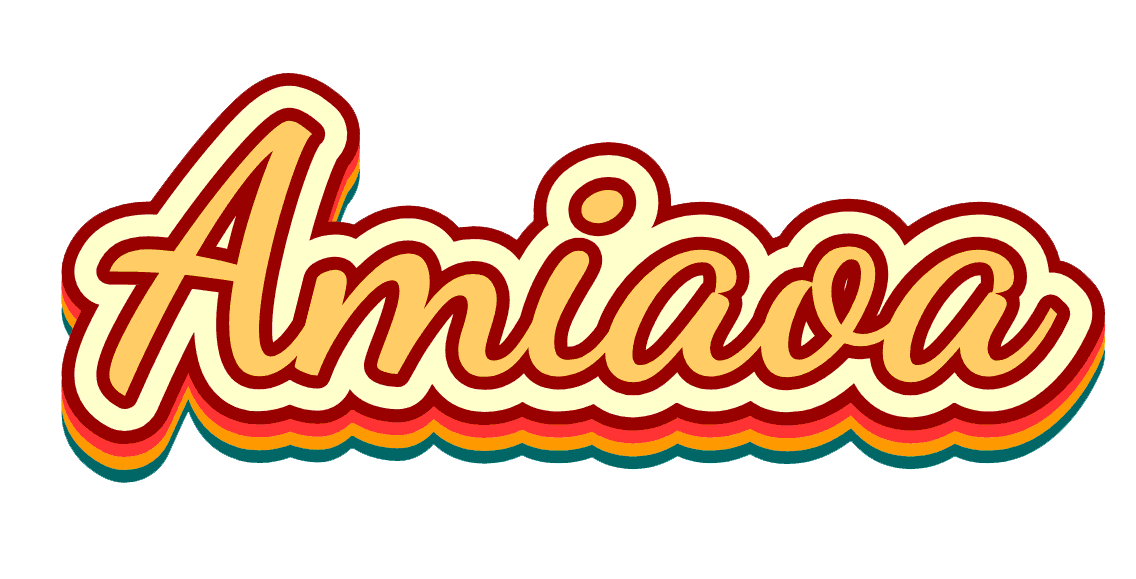Are you curious about how brain health from birth influences your child's development? The answer is: it plays a crucial role! 🧠 From the very first moments of life, your baby's brain begins to shape itself based on various factors like nutrition, emotional support, and environmental stimulation. I often remind parents that they are essentially the architects of their child's cognitive journey. By making informed choices, you can significantly impact their brain development and overall well-being. In this article, we'll explore the incredible journey of brain development, offering practical tips and insights to help you foster a healthy brain from the very start. Let's dive in and discover how you can make a positive difference in your child's life!
E.g. :What is Brain Health? Unlock the Secrets to a Sharper Mind Today!
- 1、The Incredible Journey of Brain Development from Day One
- 2、Prenatal Power: Setting the Stage Before Birth
- 3、Nutrition Know-How: Feeding Growing Minds
- 4、Play: The Serious Business of Childhood
- 5、Tech Time: The Screen Dilemma
- 6、Sleep: The Secret Sauce of Development
- 7、Emotional Intelligence: The Often Overlooked Superpower
- 8、When to Seek Help: Red Flags and Resources
- 9、FAQs
The Incredible Journey of Brain Development from Day One
Why Those First Moments Matter So Much
Did you know your baby's brain starts forming connections before they even take their first breath? 🤯 That's right - brain health from birth begins in the womb! I always tell parents that those early months are like building the foundation of a skyscraper. You wouldn't cut corners on a building's base, would you? Same goes for your little one's developing mind.
The first three years see the most rapid brain growth, with neurons forming connections at a mind-blowing rate of 1 million per second. That's why everything from the lullabies you sing to the way you respond to their cries makes a difference. Think of yourself as the architect of their cognitive future - pretty awesome responsibility, huh?
Nature vs. Nurture: The Ultimate Teamwork
Here's something that might surprise you: while genetics load the gun, environment pulls the trigger when it comes to brain development. 🎯
Let me break this down with a simple table showing how different factors influence brain health from birth:
| Factor | Positive Influence | Negative Influence |
|---|---|---|
| Nutrition | Breastmilk, omega-3s | Processed foods, sugar |
| Stimulation | Reading, playtime | Screen time >1hr/day |
| Emotional Support | Responsive caregiving | Chronic stress |
See what I mean? You have way more power than you might think to shape your child's brain health from birth through simple daily choices.
Prenatal Power: Setting the Stage Before Birth
 Photos provided by pixabay
Photos provided by pixabay
Eating for Two Brains
You've probably heard "you are what you eat," but when pregnant, you're building what you eat! 🍎 Here's a fun fact: your baby's taste buds develop by week 15, which means they're already getting familiar with flavors from your diet.
Want to know the ultimate brain-building shopping list? Stock up on:- Wild-caught salmon (hello, DHA!)- Leafy greens (folate powerhouses)- Eggs (choline champions)- Greek yogurt (calcium and protein)- Blueberries (antioxidant superstars)
Stress Less, Grow More
Now here's a question you might not have considered: Can your stress really affect your baby's brain? The answer is yes - but before you stress about stress, let me explain!
Chronic high stress floods the womb with cortisol, which can actually alter fetal brain development. But here's the good news - normal everyday stress won't cause harm. It's the constant, unrelenting stress we need to watch for. Try these simple de-stressors:- 5-minute meditation breaks- Prenatal yoga (even just stretching counts!)- Laughing with friends (yes, it counts as therapy!)- Warm baths (sans super hot water)
Nutrition Know-How: Feeding Growing Minds
Breastmilk: The Original Superfood
If breastmilk were a superhero, its cape would be made of DHA and its shield of immunoglobulins! 🦸♀️ Here's why it's the gold standard for brain health from birth:
Breastmilk contains:- Perfectly balanced fats for myelin formation- Live white blood cells that boost immunity- Stem cells that may repair tissue- Sleep-inducing hormones (parent win!)- Taste-changing flavors based on mom's diet
 Photos provided by pixabay
Photos provided by pixabay
Eating for Two Brains
When starting solids around 6 months, think rainbow! 🌈 The more colorful the plate, the broader the nutrient spectrum. Some all-star first foods:
Brain-Boosting Purees:- Avocado (nature's perfect fat)- Sweet potato (vitamin A for days)- Lentils (iron without the meat)- Banana (potassium powerhouse)- Peanut butter (thinned with breastmilk)
Pro tip: Don't shy away from spices! Mild cinnamon or turmeric can introduce diverse flavors while providing antioxidants.
Play: The Serious Business of Childhood
Why Peek-a-Boo is Basically Baby Harvard
That silly game you've played a thousand times? It's actually an Ivy League education in disguise! 🎓 Here's the neuroscience behind classic play:
When you cover your face and reappear, you're teaching:- Object permanence (things exist even when unseen)- Cause and effect (my actions make things happen)- Social reciprocity (back-and-forth interaction)- Emotional regulation (managing anticipation)- Language patterns (the rhythm of speech)
Toys vs. Household Items: The Shocking Truth
Want to know a secret? The best "toys" often aren't toys at all! Some everyday items that spark incredible learning:
Kitchen Symphony:Wooden spoons + pots = rhythm lessonsMeasuring cups + water = physics 101Colander + pipe cleaners = fine motor gym
Laundry University:Socks = matching gameHangers = spatial reasoningFolding = geometry in action
Tech Time: The Screen Dilemma
 Photos provided by pixabay
Photos provided by pixabay
Eating for Two Brains
Let's tackle the elephant in the room: in our digital world, can screens ever support brain health from birth? The answer isn't simple black and white.
Research shows:- Under 18 months: Video chatting with Grandma = good; passive screen time = not helpful- 18-24 months: High-quality educational content with co-viewing = can have benefits- 2-5 years: 1 hour max of curated content with discussion afterward
Making Screen Time Smart Time
If you do use screens, try these pro tips to maximize benefits:
1. Always watch together and talk about what you see ("Wow, that bear is climbing! How does he do that?")2. Choose slow-paced shows with clear speech (Mr. Rogers would be proud)3. Relate content to real life ("Remember when we saw a squirrel like that?")4. Follow up with hands-on activities (watch a show about shapes then hunt for shapes at home)5. Establish tech-free zones (meal times and bedrooms)
Sleep: The Secret Sauce of Development
Why Zzz's Matter More Than You Think
Here's a brain-boosting equation: More sleep = Better learning. During those precious naps and nighttime sleep, amazing things happen:
- Memories consolidate (like saving files on a computer)- Neural connections strengthen (building better wiring)- Growth hormone releases (for body and brain)- Toxins get flushed out (brain housekeeping)- Emotional centers reset (mood regulation)
Crafting the Perfect Bedtime Routine
Want to set up sleep success? Try this science-backed wind-down sequence:
1. Power Down Hour: Dim lights, quiet play2. Bath Time: Warm water lowers core temp (sleep signal)3. Massage: Gentle pressure calms nervous system4. Story: Familiar books signal sleep time5. Lullaby: Same song nightly creates rhythm
Remember - consistency is key but perfection isn't required. Some nights will be rocky, and that's completely normal!
Emotional Intelligence: The Often Overlooked Superpower
Feelings First, ABCs Later
Did you know emotional skills in preschool predict academic success better than early reading? That's right - naming feelings is just as important as naming letters when it comes to brain health from birth.
Try these simple emotion-boosting activities:- Play "feelings charades" with facial expressions- Read books that label emotions- Narrate your own feelings ("I'm frustrated this jar won't open!")- Validate their emotions ("You're mad because...")- Teach simple coping strategies (deep breaths, counting)
The Magic of Mindfulness for Minis
You might think mindfulness is just for stressed-out CEOs, but kids benefit tremendously too! Simple practices include:
- Belly breathing with a stuffed animal on their tummy- Nature noticing ("What do you hear?")- Gratitude moments at meals- Yoga poses like "sleepy sloth" or "brave lion"- Sensory exploration with textured objects
The best part? These techniques help wire the brain for better focus and emotional regulation - skills that pay off for decades!
When to Seek Help: Red Flags and Resources
Developmental Milestones Made Simple
Every child develops at their own pace, but there are general guidelines for brain health from birth. Here's a quick cheat sheet:
By 3 months: Smiles socially, follows objects with eyesBy 6 months: Rolls over, babbles consonantsBy 9 months: Sits without support, responds to nameBy 12 months: Points, says "mama/dada" specificallyBy 18 months: Walks alone, uses several words
Finding the Right Support
If you have concerns, early intervention is key! Trust your instincts - you know your child best. Helpful first steps:
1. Talk to your pediatrician (bring specific examples)2. Contact local early intervention programs (often free!)3. Connect with other parents (you're not alone)4. Document behaviors (videos can help professionals)5. Remember - seeking help is a sign of strength, not failure
The most important thing? Keep loving and engaging with your child through it all. That connection is the most powerful brain-builder of all. ❤️
As we wrap up our exploration of brain health from birth, it's clear that the journey starts even before your little one enters the world. From the moment of conception, the environment and choices you make play a pivotal role in shaping their developing mind. I've shared how essential it is to provide a nurturing atmosphere filled with love, stimulation, and proper nutrition. Remember, you're not just a caregiver; you're the architect of their cognitive future. 💪
With the right practices—like ensuring a balanced diet during pregnancy, engaging in meaningful play, and fostering emotional intelligence—you can significantly influence their brain health from birth. I encourage you to take action by implementing some of the tips discussed, whether it’s introducing nutrient-rich foods, limiting screen time, or simply being more mindful of your stress levels. Let’s empower our children to grow into their fullest potential! 🌟
I'd love to hear your thoughts—what strategies have you found effective in supporting your child's brain development? Feel free to share in the comments below! And don’t forget to check out our other articles for more insights on parenting and child development. Together, we can create a brighter future for our little ones! 😊
E.g. :Brain Health from Birth – Nurturing Brain Development During ...
FAQs
What are the key factors influencing brain development from birth?
When it comes to brain development from birth, several key factors play a crucial role. Nutrition is paramount; for instance, foods rich in omega-3s, like wild-caught salmon, support brain health. Stimulation is also vital—activities like reading and engaging playtime can enhance cognitive growth, while excessive screen time can negatively impact development. Lastly, emotional support through responsive caregiving helps foster a secure environment for your little one. By focusing on these areas, we can significantly influence our child's brain health and development from the very beginning.

